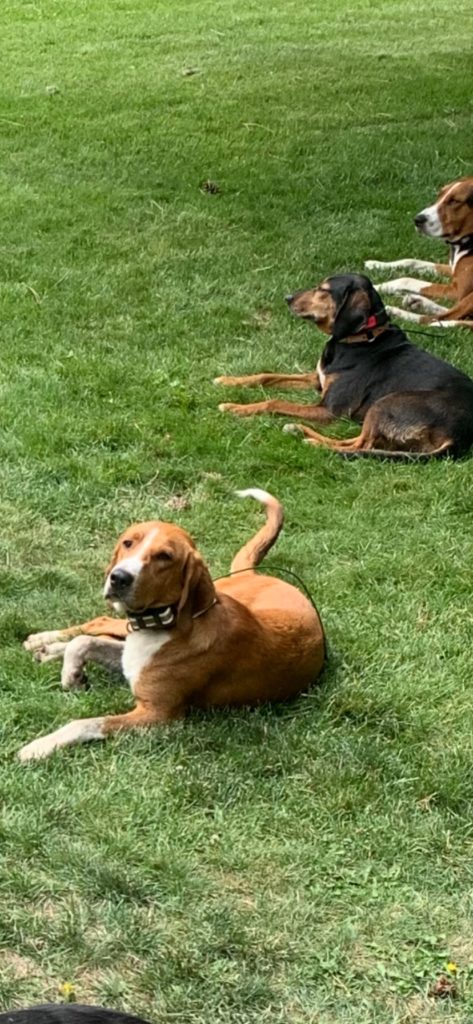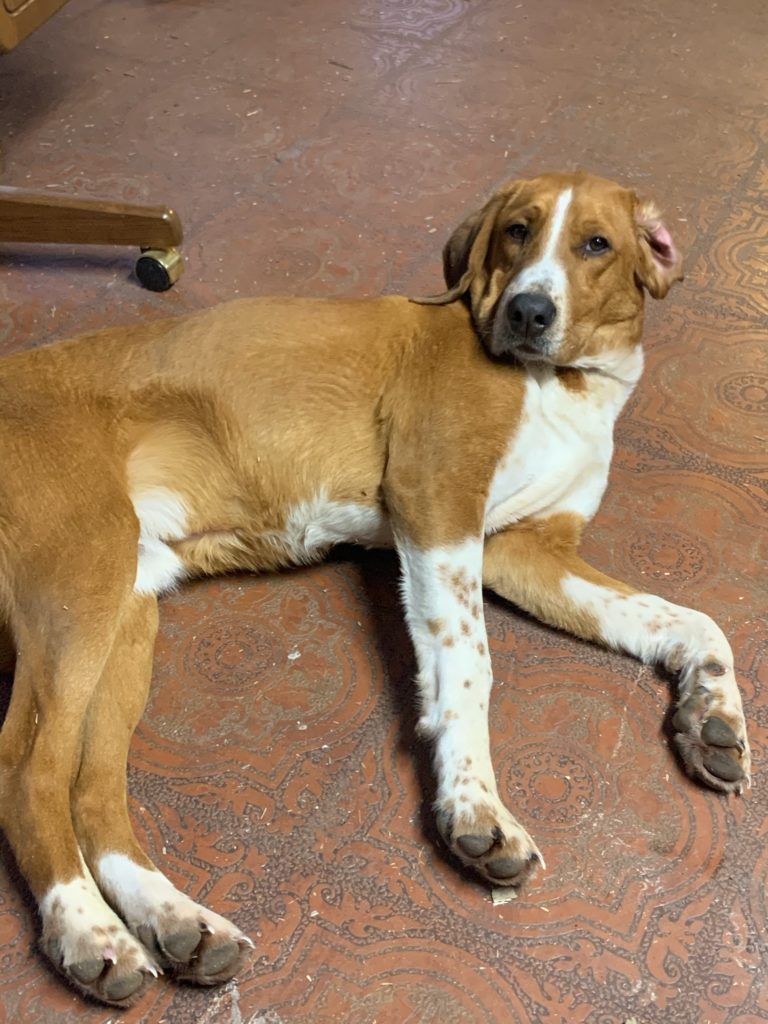
Unusual Incident Occurs After Northeast Washington Bears Hazed Away From Camp
A puzzling incident is simmering in Northeast Washington, one that only recently came to light through a 911 call.
It all started out relatively normal enough that mid-July Sunday morning in the countryside.
The owner of a religious camp near Newport called a Pend Oreille County houndsman to report some black bears were back at his dumpster.

The previous day, a kid trying to throw some trash into the receptacle had had a run-in with a sow with two larger cubs in tow.
The local Washington Department of Fish and Wildlife game warden was informed and after the officer and his agency boss reviewed the incident, they emailed a WDFW bear-hazing permit to the houndsman.
Hazing is an initial step to tell a problem bear or bear family that they’re not welcome at a location and to prevent them from becoming accustomed to it. While hound hunting was long ago banned in Washington, “department-approved and controlled hazing activity” is exempt. With how many people continue to feed wildlife in violation of state law or operate hobby farms without housing their animals properly, it’s essentially a public safety service.
So overnight, the houndsman, who didn’t wish his name to be made public, and two of his dogs went to the camp along the Pend Oreille River and initially treed a raccoon. With the bears apparently gone, they went home.
Then around 8:30 a.m. on July 18, with the bears back at the camp’s dumpster, the owner again called the houndsman, who this time loaded up five dogs and arrived around 9:30 a.m.
His hounds were quickly on the bears’ trail and they all circled the sprawling camp property a couple times before two dogs “dropped out of the race,” as houndsmen say, exhausted.
But three dogs were still on the track as the bears headed north away from the river and across Le Clerc Creek Road, which traces the north then east bank of the Pend Oreille. Shortly afterwards another dog appeared to quit moving, the houndsman’s GPS told him.
With temps already into the 90s that morning, he decided to round up his pack so that no more suffered from exhaustion.
He quickly caught up to the two hounds that had kept on the bears, then headed to the location of the fifth dog, an 11-month-old named Chase.
He assumed that the young dog had laid down in the shade or something or, being friendly, found someone to pet it, and that he’d soon get a call, as his phone number is on its collar.
That didn’t happen.
The houndsman’s account of the day indicates that his GPS took him to a driveway not far from the camp and he pulled up to a house there.
There, a woman sat in a chair and used her phone to take a video him. When he got out of his truck, he said that he was asked if he was “looking for something?” to which he responded that he had a “dog here someplace.”
He said that she asked if he had a permit, which he offered to let her see it but said he was refused and told instead that “Enforcement will handle it.”
“Handle what?” he said he wanted to know, and was told “trespass.”
He said he then followed the woman to the garage to get Chase and that he apologized and explained that he’d been hazing bears and it hadn’t quite gone according to plan.
He said the woman told him he’d watered the dog, which he thanked her for, then he loaded up his hound and left.
On the drive home with his hounds he said that he “ran into” two WDFW game wardens who he explained the situation to twice – one officer arrived after the other – and he showed them his hazing permit.
He said one took the permit and highlighted two sentences focusing on trespassing and asked him to read both.
Afterwards they parted ways.
The houndsman said that 11 days later he received a trespassing citation from WDFW.

The story might have ended there and been forgotten as an oddity.
“Literally, this is the first problem,” the dog handler said about his experiences hazing.
But this week, a strange 911 call from the same morning surfaced and it raises some troubling questions.
It was purportedly made by the woman who had the houndsman’s dog and it appears to have taken place not long before he arrived to get Chase that Sunday morning.
The audio was made public late Wednesday afternoon during an episode of the Hound PodCast, a production of Battle Ground, Washington-based Double U Hunting Supply, which sells “dog training systems and supplies, as well as equipment for hunting houndsmen and women.”
From there it was initially shared on Facebook by pro-hunting and -trapping organizations, as well as on the Hunting Washington forum.
During the 41-minute segment, the podcast’s hosts first play the 911 tape and then discuss it and related topics.
The actual call itself lasted just 1 minute, 17 seconds and after the woman gives her location and phone number, the operator asks the purpose of her emergency call.
“Um, so I just saw hounds chasing wildlife through my property and I shot at it,” she tells 911.
“OK. All right,” he responds.
As he types that information into the system, the woman asks, “Is this that project that the Kalispels are doing?”
The operator says that he doesn’t know and then asks her to clarify whether she “shot at the hounds or the wildlife?”
“Yep, the hounds,” she confirms.
Asked if she knows if she hit them, she states, “Uh, no” at first and when asked to clarify whether she knows whether she did or did not hit them, she responds, “No,” and that “the dog came back to us.”
The woman ends the call hurriedly with allegations of previous threats made and a request to send “the police immediately.”
The houndsman, when asked this morning if the shot was mentioned to him while he was at the woman’s residence, said it had not been.
He said that when he was contacted by the wardens, they all inspected the dog and it was “totally fine.”
Asked how often he’d experienced a resident firing shots during a hound pursuit, he could only recall a single incident – a blast heard near a sketchy house – in the four years he’s been running dogs and hazing for Washington and at least 11 years before that tagging along behind friends’ packs.
For he and fellow houndsmen, as well as other interested parties, the 911 call has put them onto a new and more disturbing scent than just some nuisance bears:
The woman’s unusual interest in whether the pursuit that day was related to a study by the Kalispel Tribe, who reside on a tiny reservation in the middle of Washington’s Pend Oreille River Valley, north of Newport.
That research involves catching mountain lions near homes and farms and that haven’t been involved in livestock or domestic animal depredations, capturing and outfitting them with telemetry that collects a ton of locational data, and hazing them several times over a six-week period with the use of a speaker broadcasting a human voice and hounds then treeing the cats.
“… (T)he data will demonstrate whether the cougar learns to associate the hazing with the sound of human voices. Early data shows that they are mobilizing more quickly after hearing the voices and moving further away from the voices, but more data is needed to confirm these early findings,” a study writeup states.
A Spokane-area houndsman – someone who might be described as an elder statesmen in that community – believes that some folks are eager to shut down the tribal study because of what it might find.
And he claimed that they might be able to do just that through a simple trespass violation, given what he described as the tribe’s status with the state.
Washington cougar management has been a hot button in recent years, with Governor Inslee even stepping into the Fish and Wildlife Commission’s oversight wheelhouse to reduce hunting quotas, a legislatively mandated hound training program put into place earlier this year, and a South-central Washington sheriff using his public-safety mandate to remove lions that may or may not have actually been threatening public safety, and which is now the subject of a recent lawsuit by the Mountain Lion Foundation. Then there’s former WSU professor Rob Wielgus’s old findings.
Adding a strange turn to this particular mid-July incident, the woman’s day job is a state wildlife conflict specialist. She works for WDFW, and even if it occurred in the back half of a weekend, it’s almost like a friendly fire incident with an on-duty WDFW-authorized dog handler’s hound.
We’re not naming her because efforts to reach her for her side of the story through a publicly listed telephone number, her work phone number, work email and her email at a wildlife organization she’s the secretary of were all unsuccessful this afternoon.
That may be because, according to a WDFW spokesman on Wednesday evening, the woman is on preplanned annual leave.
But the incident does have the attention of the agency and some commissioners have been sent the link to the podcast.
“Management is aware of this and is looking into it currently,” the WDFW spokesman said Wednesday evening.
Yesterday, they also confirmed that WDFW has used this particular houndsman in the past, a non-lethal pursuit permit had been issued to deal with the nuisance bears, and that the animals were successfully hazed away from the camp.
As for what happened outside the camp, the spokesman reiterated, “We are reviewing the details of this situation to understand what occurred.”
So are a lot of people.
